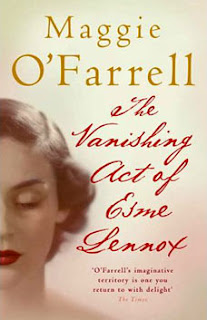On 6 December 1989 14 female students were murdered in a shooting spree at the Ecole Polytechnique, in Montreal Canada. This outrageous act of violence against women was the first I had ever heard of a school shooting and the horror of this crime stays in my memory.
Ten years later in April 1999 two students committed the Columbine High School massacre in Colorado killing 12 of their classmates. Again, in 2007 at Virginia Tech, 32 students and faculty were killed by a student.
These real life events prompt many questions: Why? What is the motive behind these killings? What sparked the assault? How were these killers raised? Were violent films or games to blame? Is access to guns too easy?
While the perpetrators in each of these massacres committed suicide before answering these questions, authors Jodi Picoult and Lionel Shriver have attempted to fill in these gaps with interesting novels about teenage killers.
 Jodi Picoult’s Nineteen Minutes (2007) focuses on 17-year-old Peter Houghton who has been bullied his whole life. Peter’s gentle nature and lack of athleticism made him a victim to playground tortures and daily humiliation in the halls at school. One day, Peter has enough and in a 19-minute spree he has killed 10 classmates and wounded dozens more.
Jodi Picoult’s Nineteen Minutes (2007) focuses on 17-year-old Peter Houghton who has been bullied his whole life. Peter’s gentle nature and lack of athleticism made him a victim to playground tortures and daily humiliation in the halls at school. One day, Peter has enough and in a 19-minute spree he has killed 10 classmates and wounded dozens more.
Josie Cormier grew up with Peter. She is part of the in-crowd and is a witness and silent participant in his humiliation. Josie’s mother Alex is initially the judge in the case, but recuses herself when her daughter gets put on the witness list. Jordan McAfee, Peter’s lawyer, attempts to defend his client by applying Battered Women’s Syndrome, claiming Peter acted in a dissociative state due to post-traumatic stress disorder.
Lionel Shriver’s We Need to Talk about Kevin (2003) tackles the same subject matter from a different perspective. It is written in the first person in the form of letters from Kevin’s mother Eva to her husband Franklin while Kevin is in jail for shooting seven classmates. Eva writes of her relationship with Franklin, her ambivalence towards motherhood and instances of Kevin’s childhood that revealed his early sociopathic tendencies. Eva attempts to answer the nature versus nurture question by ascertaining whether Kevin was born a bad seed or if Eva and Franklin somehow failed their son.
 Despite the grim subject matter, both books are compelling reads examining how these tragic events affect individuals and the community. Picoult and Shriver try to get inside the minds of these killers by hypothesising their motives and what lead up to their crimes.
Despite the grim subject matter, both books are compelling reads examining how these tragic events affect individuals and the community. Picoult and Shriver try to get inside the minds of these killers by hypothesising their motives and what lead up to their crimes.
Picoult is a more populist storyteller and adds courtroom drama to draw the reader in. Her novels are true page-turners and reliable easy reads, although they are slightly formulaic with stereotypical characters. Nineteen Minutes exposes the terrible trauma that can result from schoolyard bullying.
In contrast, Shriver doesn’t do ‘easy’ and her novel is a challenge to read. Eva is an unlikeable character and her relationship with young Kevin is heartbreaking. Shriver uses complex language and creates a tremendous sense of unease.
While I enjoyed both books, We Need to Talk About Kevin is the one that has stayed with me and the one I found most intriguing. Eva is not a stereotypical mother and her feelings about parenting make her fascinating. Despite the challenge of the language and the subject matter it is well worth the read. If you only had time for one, Kevin is the better novel.
We Need to Talk About Kevin won the Orange Prize for literature in 2005 and has recently been made into a film staring Tilda Swinton as Eva.







